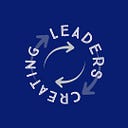What’s in Your Fishbowl?
MOVING FORWARD BY POST-SOLUTION ENVISIONING INSTEAD OF PROBLEM-FOCUSED VEXING
written by Tyson Wooters, Leadership Coach & Cultural Strategist with Leaders Creating Leaders
When I fly out to spend a day or two with your students, the most common misconception is that we’re embarking on a search-and-destroy mission…likely to alternate between trust falls and beating the problems out of each other.
Let’s not.
Instead we’ll talk about the water in their fishbowl: the culture, the set of assumptions and norms that guide our behavior with and toward each other.
Shifting from the present “water” to the future vision, we speak explicitly about choosing, designing, and building a new culture, a culture that feeds us and lets us propel each other forward.
Much more useful than starting with the problem, start with the post-solution vision. Design it for yourself like a dream. Make your vision for the future clear and vivid. Fill in the details. Consider performances, rehearsals, and off-time. Think about behaviors toward each other and their teachers and parents. Picture that new marimba you want fully paid off and in gleaming in the back of the room. Fall in love with your dream. Your own passion is what makes it contagious.
Visit your vision often. Share it with the students daily — sometimes explicitly, but mostly in bits and pieces as you live it. Build this vision with its own distinct spiral curriculum, because your unique, personal, authentic future vision is both the description of, and the prescription for, maximizing your agency as an educator.
Go read that last part again. Don’t skim it; read it.
Cliches become cliches for a reason. It turns out that, “Be yourself” is actually good advice no matter who you are. Young directors…are you still running a carbon copy of the HS program you went through? Start running the band program you want. The vision is yours, and nobody else will get your students there. We spend so much time building habits and skills to fit the job… which is a little like adjusting your head to reach the saxophone. Why not just adjust the neck strap?
So why not flip it up? Design your band program around you — your own habits, skills, and the preferences by which you already live. e.g. is your inbox always overfull? Maybe you don’t get to them all. Maybe you’ll never be the empty inbox band director. Maybe you can allow such truths to wash over you, recognize them for the blessing they are, and move forward with realistic plans that to handle communications.
The process is not complicated, it’s just slow and demands consistency. The more you share that vision, the quicker you’ll start seeing “A ha! moments”. Consider the following conversation between two fish swimming together:
Fish 1: “The water is perfect today! Nice and clean, not too hot or too cold, even the current is going where we want! This is great water!”
Fish 2: “What the heck is water?”
Now run perhaps a more familiar version of this conversation in your mind:
Student 1: “This rehearsal is going great! Fast pace, we students are engaged and working hard. Let’s do it like this every time!”
Student 2: “Huh? I’ve just been just doing reps.”
The chief difference between #1 and #2 in both cases is simple awareness. A fish born in water, living in water its whole life, may well never actually notice the water until leaving it. The student leaders you send away to leadership camp are the same; we work and work and teach them about the water, striving to send them back to you with new awareness, sustainable passion to make it contagious, and a curiosity as to their director’s specific vision and needs. We teach them to become a conduit for that vision, to translate it for those who don’t quite see it yet.
What could your band accomplish over the next 5 years? 10 years?
Take a few minutes to dream today. Here are a few leading questions to get you started:
1. What parts of your job would you give away if you could?
2. Do you feel energized or tired most mornings? Evenings? How do you want to feel?
3. If today were the best day of your life, how would people treat you?
4. List out several different kinds of success your students will experience, (e.g. Musical performance, visual performance, life skills, work ethic, accountability, etc.)
Check back here in the coming weeks for the next step to building and sharing your vivid vision!
EDITOR’S NOTE: We at ||:Leaders Creating:|| value the opportunity to engage with our readers, clients, colleagues, and friends. Please share your thoughts and questions in the comments section!
Tyson Wooters has been called an entertainer, a comedian, and most importantly an educator. His life mission is to educate people through humor and shared experience about the phenomenal power of taking real accountability and ownership in every aspect of life.
Although Tyson spent his first career educating in public schools, colleges, and corporate events, these days he helps people ensure their financial goals, through his work as a financial advisor with Edward Jones.
Tyson lives in Salem, Oregon, with his wonderous daughter, Kylea, and dynamo wife, Brooke. He enjoys travel, scuba diving, and hugging strangers, which he has done in 45 U.S. states and 15 countries.
Tyson can be reached at tysonw@leaderscreating.com
Visit https://www.leaderscreating.com/ for more information about our program!
